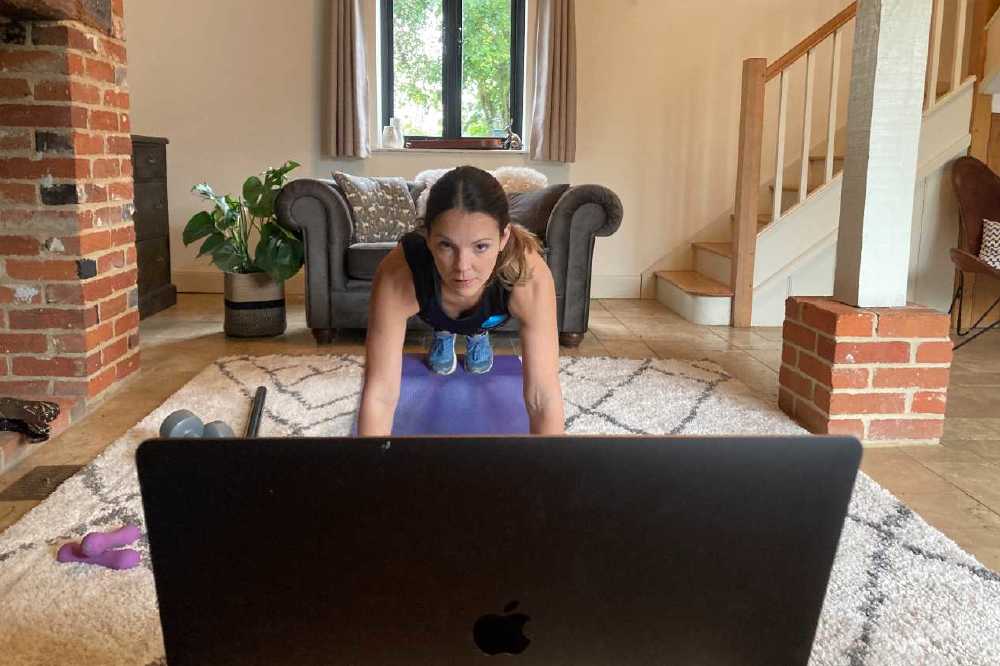Regular exercise is the magic bullet that helps you to nurture your mental wellbeing. Different forms of exercise can be used to improve your mood and self-confidence, helping to reduce stress, improve sleep and release lots of happy hormones so you feel better. Jane Hart is a Personal Trainer and the joint business owner of GetMeFit, (www.getmefit.co), a platform, which connects you with independent personal trainers and classes either near you or online. Here are her top seven tips for using fitness to improve your mental health:

Personal Trainer, Jane Hart
1) Get outside for some fresh air, nature, and vitamin D
Exercising outdoors, whether cycling, running, or walking, is great for the soul. We all feel better for getting some air in our lungs and sun on our faces (whilst wearing suitable sun protection, of course!)
“Nothing makes you feel more childlike than being outdoors,” says Dr. Pamela Peeke, a fellow of the American College of Sports Medicine and author of Fit to Live. “You’re modulating stress hormones, increasing endorphins and increasing the secretion of serotonin,” so your mood brightens.
Having nature as your backdrop when exercising can also be a great distraction from your everyday stresses and looking into the distance somehow puts your worries in perspective.
A 2015 study found that people who walked for 90 minutes outside in a natural environment were less likely to ruminate on their problems and had less activity in the brain area linked to depression, compared to people who took similar walks but in urban areas.
Whether you walk, jog, or run, why not try to progress this over time? You can do this by adding distance or pace, or even throwing in a spot of interval training. The couch to 5k is a great starting point if you haven’t run before.
2) Connect with others
Group exercise is one of the best ways to stay motivated and have fun while exercising. It also makes you accountable (to your instructor and friends/crew) so you’re much more likely to show up. Even if you don’t feel like doing a workout beforehand, you never regret it afterwards!
The same principles apply whether in person or on Zoom; the energy you get from seeing others jumping around with you makes you work harder and feel more connected. And if you’re working from home, the few minutes of fun chat at the beginning and the end of the session can provide a surprisingly powerful boost to your day.
Running clubs and walking groups are also a great way to meet new like-minded people.
3) Breathe
This is easier than it sounds. When you’re stressed and busy your breathing automatically becomes shallower.
Regularly practising Yoga and/or Pilates is a great way to help you slow down a little and take in some deep breaths which calms your nervous system. Particularly if you look for a meditative yoga style class, where you can learn and participate in some amazing head-clearing breathing techniques.
4) Get happy hormones pumping
For cardio junkies, there’s no better way to burn off stress than sweating it out in a hardcore HIIT or spin session. The rush of happy chemicals (endorphins, dopamine, serotonin, oxytocin) feels amazing!
5) Feel empowered
The positive feelings of mastery and accomplishment that develop as you perfect your techniques and progress your maximum strength, speed or endurance are powerful. Even the simple act of taking the time to exercise and do something positive for you, is empowering.
Feeling in control is a great way to reduce stress levels according to Dr. Gordon (Penn State College of Medicine) as it makes us feel generally more capable of coping.
We’ve all been in particularly challenging times through the pandemic one way or another, and much of the associated stress seems to have derived from the lack of control in key areas of our lives. Following a progressive exercise programme can be a brilliant antidote to this, as you see tangible results to reward your efforts which can have an incredibly positive impact on your overall outlook.
6) Strength training is a secret weapon for de-stressing
This doesn’t mean you have to lurk around the back of the gym waiting to use the bench press; it can be done at home with small dumbbells or even bodyweight exercises.
Some clients seem drawn to the surprising meditative effect weight training can have on their mental wellbeing too. The focus required to get everything right, forces you to ‘take notice’ and puts you in a state of presence which is a big part of the steps to mental wellbeing developed by the New Economics foundation.
7) Better posture = better mood
It’s essential you focus properly on maintaining good posture when exercising (particularly strength training) to avoid injuries. By focusing on correcting how you hold yourself and strengthening your main muscle groups (abdominals, pelvis, and hips), you will programme your body to improve this even when you aren’t exercising, and you will automatically elevate your mood. When you’re sitting in a slumped posture all day at a desk you automatically feel lethargic. If you sit up straight or walk tall with your head high, you really can fake it until you make it!
Tagged in Wellbeing fitness tips

